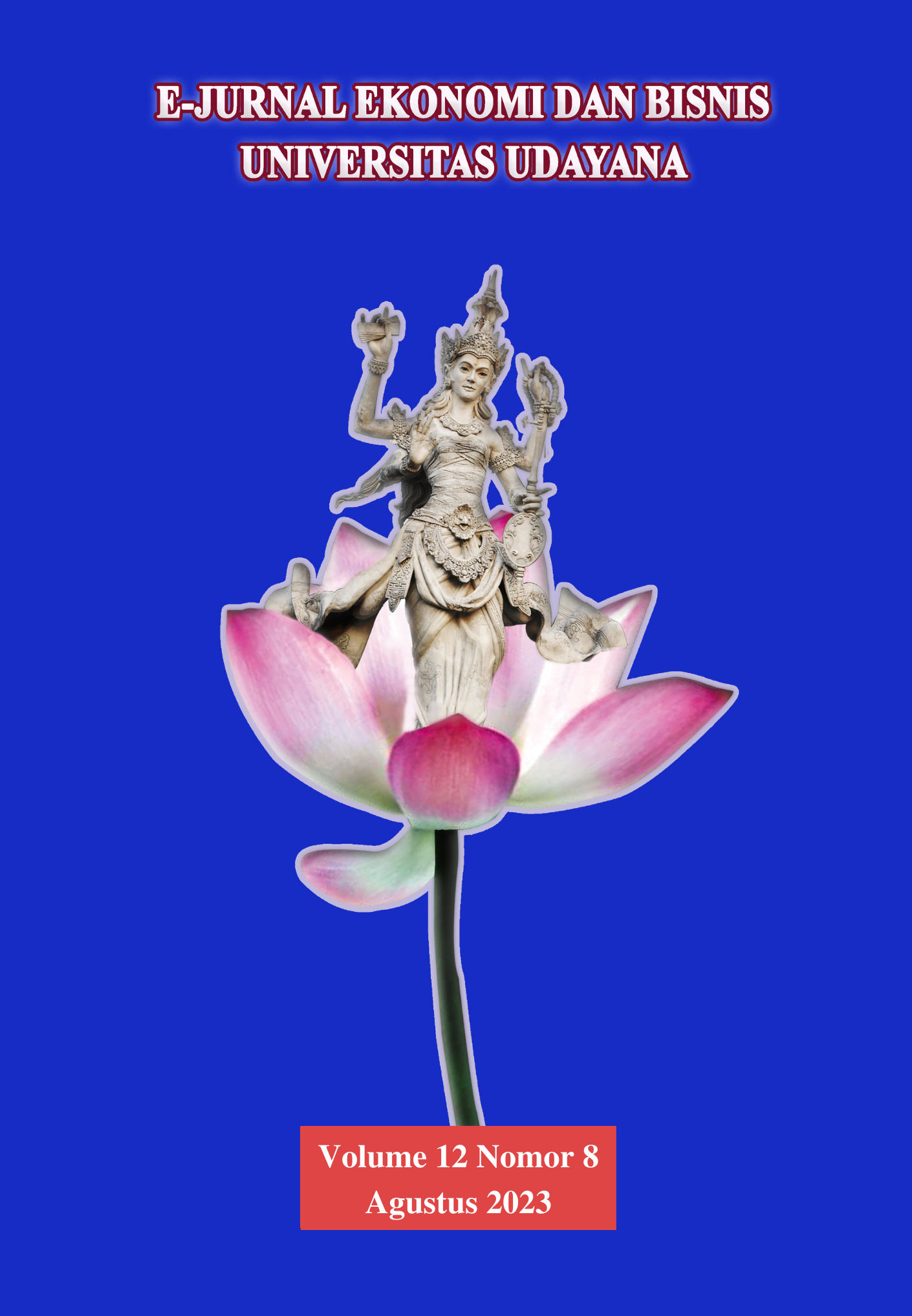PENGARUH KESESUAIAN KOMPENSASI DAN MORALITAS PADA KECENDERUNGAN KECURANGAN DI LPD SE-KECAMATAN NUSA PENIDA
Abstract
Fraud is a form of fraud that is carried out intentionally and can harm certain parties and provide personal benefits to the perpetrators of the fraud. One form of fraud can be acts of corruption and misuse of assets. This research was conducted to examine the effect of suitability of compensation and morality on fraud tendencies in LPDs throughout the Nusa Penida sub-district. This research was conducted at Nusa Penida District LPDs, totaling 42 LPDs using a survey method with a questionnaire. The number of samples in this study were 168 respondents. The sample in this study was determined by purposive sampling technique. The criteria that can be used as samples are respondents who have positions as panureksa, pamucuk, panyarikan and patengen. Multiple linear regression was used in the data analysis. The results of the analysis prove that the suitability of compensation and morality has a negative effect on the tendency of LPD fraud. The implication of this research is that the existence of a compensation system and a high level of morality will prevent fraud in the LPD. The results of this study support the fraud triangle theory and the theory of moral development.


















